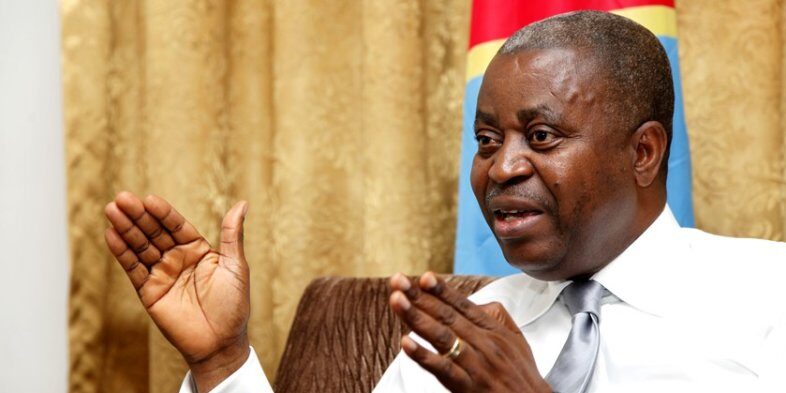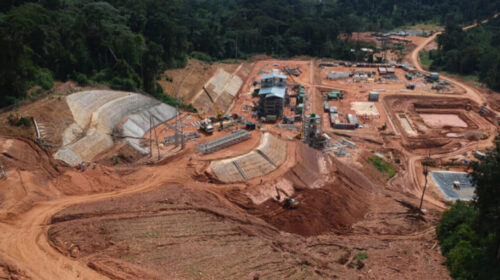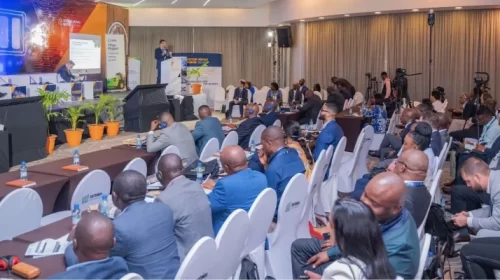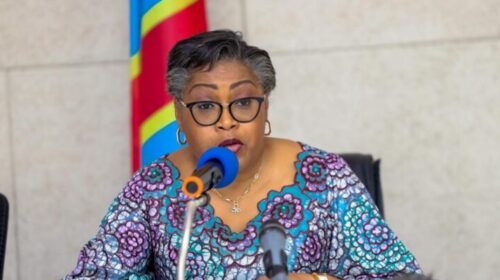DRC: for Adolphe Muzito, the cobalt mine agreement with China was an “injustice”, the country got nothing
The former Prime Minister and Executive of the Lamuka Coalition, Adolphe Muzito, spoke about the contract signed between the Congolese government and Sicomines.
For him, the Congolese feel aggrieved by the mega-mineral infrastructure deals involving cobalt – a key component of electric vehicle batteries through Sicomines’ $6 billion deal with Chinese companies, and the alleged under-reporting by China Moly of reserves at the giant Tenke mine.
Indeed, while a good part of the world’s countries use the Democratic Republic of Congo to electrify their cars thanks to the supply of cobalt – an essential component of electric vehicle batteries, but its population does not always manage to find thanks to its minerals.
A few years after his accession to the supreme magistracy, the Head of State Félix Tshisekedi President Félix Tshisekedi had castigated these agreements signed with under the administration of Joseph Kabila Kabange and never hid his desire to renegotiate them for the benefit of the interest of the Congolese population.
“The partnership between the DRC and China…my country took nothing away from the Sino Congolaise des Mines (Sicomines) agreement,” Adolphe Muzito told reporters of the $6 billion deal. agreements on infrastructure against minerals signed by the Kabila government with Chinese investors in 2008.
For Adolphe Muzito speaking to the Post, China’s entry into the DRC had filled a void left by Westerners, “although they are historically and geopolitically closer to us. Nature does not like a vacuum.” The most important thing, he said, was that the DRC gets the benefits it deserved especially as the infrastructure of the Democratic Republic of Congo fell into ruins with the different regimes that succeeded.
According to the US$6 billion deal, China was to use US$3 billion to invest in the mining industry and invest the rest in infrastructure. However, Chinese companies started exploiting the minerals even before the US$3 billion that was to be spent on building infrastructure in the DRC was disbursed, according to Muzito.
“Only $800 million has been disbursed, but still no infrastructure in sight. It’s an injustice,” he said in Brussels last week.
The DRC controls more than 60% of the world’s reserves of cobalt ore, which is mainly exported to China to be transformed into batteries for electric cars, weapons, machinery and electronic devices.
Muzito said that as the DRC moved to review mining contracts, it was important to ensure a legally fair and transparent renegotiation “to find an equitable solution that preserves the rights of investors and the Congolese people”.
A recent investigation by a global consortium of media publications and NGOs revealed how Chinese owners of some of Congo’s most prized copper and cobalt mines used one of Africa’s largest banks to funnel minus $138 million in public funds to Kabila’s family and associates, according to Bloomberg. The DRC is also under pressure from the IMF to “clean up lopsided mining deals granted to foreign companies” as a precondition for a new $1.5 billion credit line.
However, while Kinshasa maintains that it has not benefited much from the Sicomines arrangement, China claims to have built several projects in the central African country despite the obstacles, including the lack of energy to develop the mines.
Other Chinese companies operating in the DRC include Huayou Cobalt, Chengtun Mining, Wanbao and CNMC, or China Nonferrous Metal Mining Corp. The United States previously had substantial mining interests in the country. Freeport-McMoRan operated the TFM project before selling its 56% stake to China Moly in 2015, followed by the Kisanfu copper-cobalt project deal last year. China Moly increased its stake in TFM to 80% in 2019.
But great power rivalry over the DRC’s mineral wealth may not benefit the country, Muzito said. “When two elephants fight, the grass suffers. We don’t want the DRC to be the grass that suffers.
“We, ourselves, have to be organized,” he said. “We have to establish our resources before we put them on the capitalist market – whether it’s Western or Eastern, that’s not what matters. What matters is that we get our deserved advantages in this balance of power.
Last year, China’s Foreign Ministry defended the deal, saying the model had not only increased tax revenue and created more jobs in the DRC, but also provided investment in infrastructure projects such as as roads, hospitals and hydroelectric plants.
The Sicomines case is not the only project under a cloud. Mining giant China Molybdenum suffered a major setback last week after a Congolese court temporarily suspended it from operating the Tenke Fungurume cobalt and copper mine, in which it holds a majority stake.
A third-party administrator would be appointed for six months, a commercial court in Lubumbashi said in a case filed by Congolese state mining company Gécamines, which owns 20% of the project.
The problems at China Moly, the world’s second largest producer of cobalt, emerged just two weeks after its CEO Sun Ruiwen and DRC President Tshisekedi engaged in a video call, where they discussed a plan to create a supply chain for ‘new energy metals’.
They had met earlier in December in Kinshasa, where the president said that “the expansion of TFM [Tenke Fungurume Mining] and the development of the Kisanfu copper and cobalt mine are the main projects of national interest in the DRC”.
China Moly acquired a 95% stake in the Kisanfu copper-cobalt mine from US-based Freeport-McMoRan in December 2020 for $550 million.
The Congolese government – through Gécamines – accuses China Moly of failing to declare thousands of tonnes of copper and cobalt reserves at the Tenke site, a move that would have denied Kinshasa much-needed royalties.
It comes after Kinshasa formed a commission in August to investigate reservations about the TFM project, which it said would help determine the true value of government involvement through Gécamines.
According to Benchmark Mineral Intelligence, Tenke is the second largest producer of cobalt in the DRC after Anglo-Swiss Glencore and accounted for around 10% of global supply last year.
The legal action comes at a time when the cobalt supply chain is already under pressure due to high demand from the battery industry, compounded by logistical issues related to Covid-19, according to Benchmark. He noted that China Moly had planned to produce between 17,500 tons and 20,500 tons of cobalt this year, compared to 18,500 tons in 2021.
“This supply chain is already under stress because the demand for cobalt is quite good,” said Caspar Rawles, chief data officer at Benchmark. “If the court’s decision hinders the smooth flow of material exports, it will exacerbate high prices for several years.”
91 total views , 1 views today





